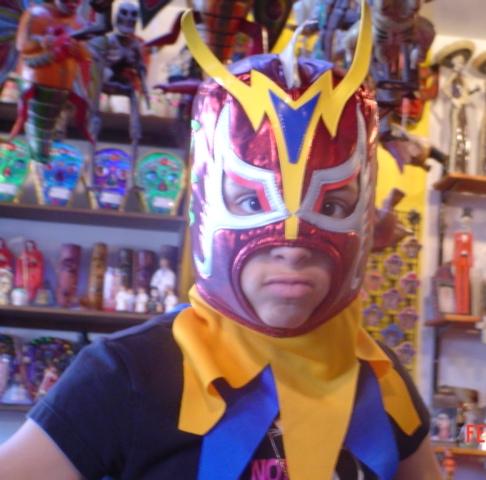 |
|
 |
|||||||
Religion: |
|||||||
Hell is vulgar. One can argue against the concept of Hell from a variety of vantage points. Its scriptural foundation is shaky. Its pagan origins are clear. It makes no logical sense, even to a reasonable and emotionally healthy grade schooler. But my most sweeping assessment of the tenet of Hell, the fantasy that one’s enemies will be tortured forever, is that it is a contemptible display of the vulgar mind.
The human heart is prone to the vulgarity of considering oneself and one’s own people superior to others. That's human nature. The flip side of this habit is to look down on outsiders. On the pettiest level, to consider one’s own cuisine, clothing, speech, and physical features to be superior to that of outsiders is a common vulgarity. In the modern world, we recognize such preferences as small-minded. To imagine that one’s own race or religion is chosen by God to be first in the world is also common, and worse. We’ve seen it so many times that we can’t take it seriously, and perhaps we are inured to it. To imagine that other religions or races are stupid, cursed, or degenerate, that’s the uglier flip side to the coin. All such bad habits are nothing but low-minded meism.
In this regard, the afterlife serves as a special window into the believer’s character. It’s a Rorschach test. Since the afterlife can’t be verified or falsified, beliefs in the afterlife have more to do with the believer’s personality than with evidence. It’s plain to see, for example, that various people that all claim the Bible as their evidence have held very different beliefs about an afterlife. The Catholic Church even builds wriggle room into its doctrine with the concept of “invincible ignorance,” which excuses some sinners. Since it’s impossible to define just who is or isn’t invincibly ignorant, individual Catholics are free to imagine their own boundaries to suit their own inclinations. So what do beliefs in the afterlife tell us about the believers?
To expect that one will live forever after death is a harmless, comforting indulgence. The Hebrews picked it up from the Zoroastrians, and the Western world has never looked back. To expect that one will be exalted and glorified is more presumptuous, but as ego-gratifying fantasies go, it’s innocuous. To fantasize that God will give you perpetual virgins to have sex with for all time might be childish, but it’s hardly mean-spirited.
To imagine, on the other hand, that those that one disagrees with will suffer unspeakable torments forever at the hands of a merciful, just God, well, that’s just sick. To believe such a thing is to hope that it’s true. Any evidence is ambiguous enough to permit a variety of beliefs, so it is the believer’s preference that makes the difference. To believe in such an afterlife is to indulge one’s own viciousness and to magnify it. Considering such an enormity to be right and proper should disqualify one from the company of right-minded souls.
—JoT
Join the discussion on my forum.
Christ's Failure: The implication of near-universal damnation.
Myth of Er: Hellenic source of Heaven/Hell imagery.
top
|
|||||||
|
March 2009 Vatican on Hell for men and women In the 20th century, the Catholic description of Hell softened, from sinners being flung into the fire to sinners willingly isolating themselves from God. With the Vatican's latest take on Hell, Benedict is taking his flock a step backward. |
|||||||